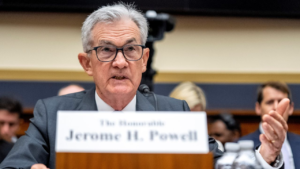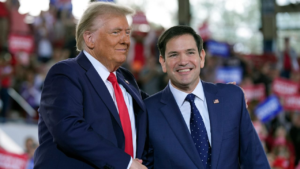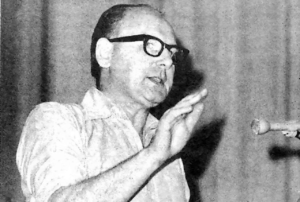By the Political Committee of the Socialist Lead of Sri Lanka and South Asia (SLLA), the Revolutionary Left Faction (RLF) of the Socialist Equality Party (SEP) of Sri Lanka.
The Historical Crisis of Revolutionary Leadership
The opening decades of the 21st century is defined by the deepest crisis of world capitalism since the 1930s. The ruling class, facing economic stagnation, political instability, and mass discontent, is turning once again to militarism, state repression, and fascistic authoritarianism. The United States, leading the imperialist powers, has been escalating its proxy war against Russia in Ukraine, preparing for a catastrophic conflict with China, and backing Israel’s genocide in Gaza. The national bourgeoisies, including those in South Asia, have intensified their attacks on workers’ democratic rights and living conditions, deepening the crisis of global capitalism.
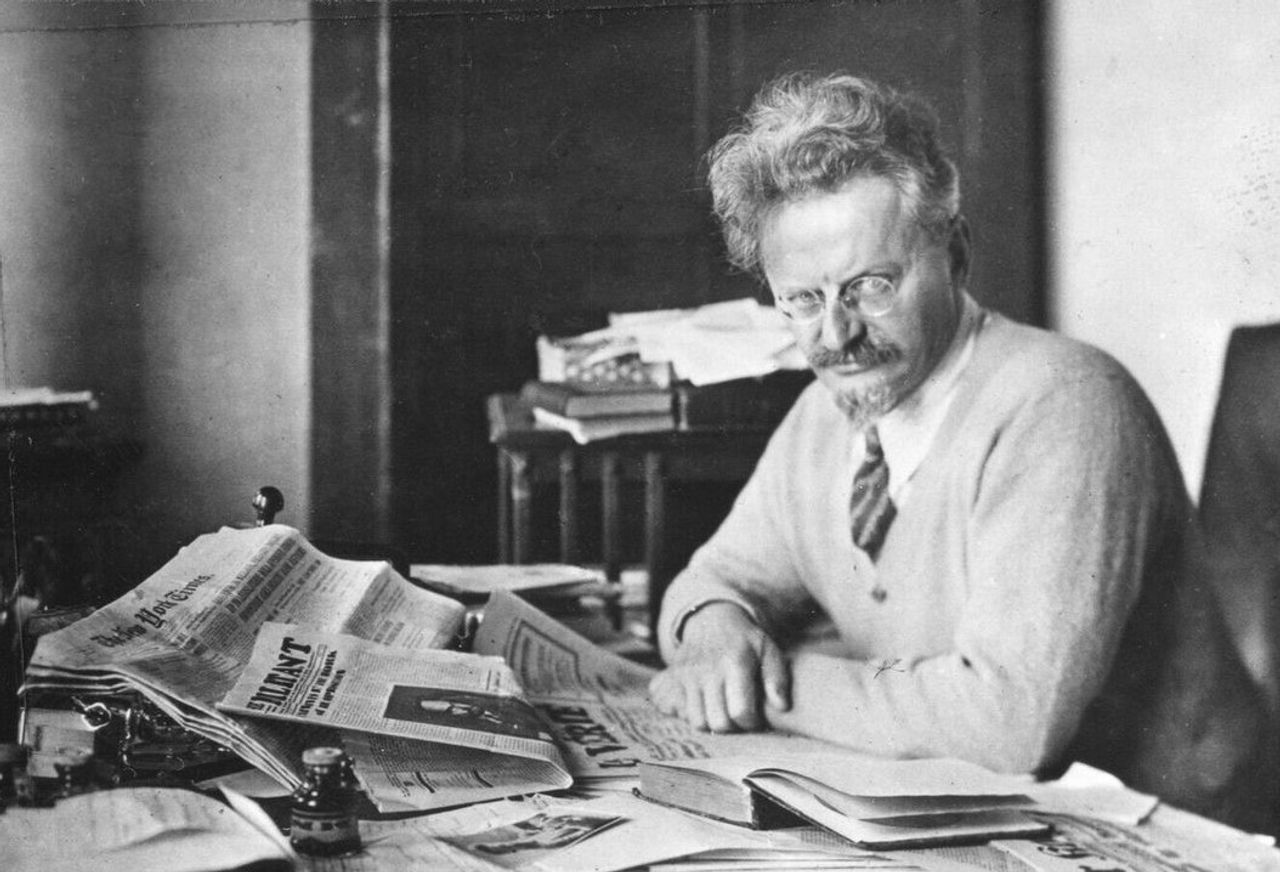
But, what is missing? The objective conditions for world socialist revolution have matured. Mass movements have erupted—from the strikes by autoworkers in the US and Europe to the mass protests in Sri Lanka and the global opposition to Israeli war crimes. However, as Trotsky wrote in The Transitional Program (1938), “The world political situation as a whole is chiefly characterized by a historical crisis of the leadership of the proletariat.” The essential question is the construction of a revolutionary leadership that can guide the working class in its struggle against imperialism, national chauvinism, and capitalist dictatorship.
This leadership is embodied in the International Committee of the Fourth International (ICFI). Trotskyist socialist internationalism today has no meaning outside of the ICFI, the only movement that defends and develops the historical and theoretical continuity of revolutionary Marxism.
Marxism and Socialist Internationalism: A Question of Program
Socialist internationalism is not a utopian ideal but an objective necessity arising from the nature of capitalist production itself. Karl Marx and Friedrich Engels established this principle in The Communist Manifesto (1848): “The working men have no country.” The capitalist system, by developing a globalized economy, has created an international working class whose liberation can only be achieved through the overthrow of capitalism on a world scale.
This fundamental principle found its highest expression in the Bolshevik Revolution of October 1917. Lenin and Trotsky based their strategy on the understanding that socialism could not be built in one country. The founding of the Third International in 1919 was meant to provide the revolutionary proletariat with an organizational center to coordinate the world socialist revolution.
However, in a note of caution, in “The Draft Programme of the Communist International – A Criticism of Fundamentals”, Trotsky referred to his own explanation rejecting the idea that socialist revolution must begin simultaneously, as follows:
“Not a single country must ‘wait’ for the other countries in its struggle. It will be useful and necessary to repeat this elementary idea so that temporizing international inaction may not be substituted for parallel international action. Without waiting for the others, we must begin and continue the struggle on national grounds with the full conviction that our initiative will provide an impulse to the struggle in other countries” (Trotsky, ‘The Peace Programme’ Works, Vol. III, part 1, pp.89-90, Russian Ed.)
The degeneration of the Soviet Union under Stalin, and the adoption of the national-reformist reactionary theory of “socialism in one country,” led to the betrayal of revolutionary movements in Germany (1923), China (1927), Spain (1936-39), and elsewhere. Stalinist counter-revolution gave birth to the bureaucratic apparatuses of the Comintern, which systematically subordinated the working class to bourgeois national interests.
In response, Trotsky fought to preserve the banner of socialist internationalism. The Fourth International was founded in 1938 to carry forward the strategy of world socialist revolution. In The Death Agony of Capitalism and the Tasks of the Fourth International (1938), Trotsky wrote:
“Without a socialist revolution, in the next historical period at that, a catastrophe threatens the whole culture of mankind. The turn is now to the proletariat, i.e., chiefly to its revolutionary vanguard.”
The ICFI and the Defense of Socialist Internationalism
Following Trotsky’s assassination in 1940, the crisis of proletarian leadership deepened. Inside the Fourth International, Pabloite revisionists emerged in the early 1950s, arguing that the Stalinist and bourgeois nationalist movements could be pressured to play a revolutionary role. This liquidationist perspective was decisively opposed by the leaders of the Socialist Workers Party (SWP) in the US, including James P. Cannon, and the British Trotskyists led by Gerry Healy. The 1953 Open Letter by Cannon and the subsequent split with Pabloism led to the founding of the International Committee of the Fourth International (ICFI).
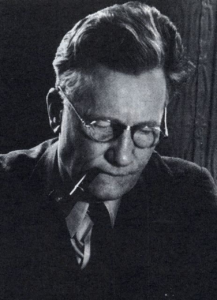
The ICFI waged an unrelenting struggle against Stalinism, Pabloism, and all forms of opportunism1, in defense of Bolshevik heritage, to unite the working class internationally against the global offensive of imperialism. In The Heritage We Defend (1988), Davith North write as follows:
“[T]the struggle waged by the ICFI against Pabloite revisionism preserved the historical continuity of the Trotskyist movement in the United States.”
Consequent to this principled fight for defence of the international party of the proletariat, the Workers Revolutionary Party (WRP) in Britain, under Healy, became a major force in the Trotskyist movement. However, by the late 1970s and early 1980s, opportunist pressures led to the bureaucratic degeneration of the WRP, a process exposed by David North and the leadership of the Workers League (US). North’s critique of Healy’s organizational methods and political deviations was fundamental in the reassertion of Marxist principles within the ICFI.

The definitive break with opportunism came in 1985-86, when the ICFI expelled the WRP leadership. North wrote in The Political Origins and Consequences of the 1982–86 Split in the International Committee of the Fourth International, (03 August 2019, as follows:
“Having the advantage of being able to look back over a period of nearly 40 years, we can recognize that the conflict initiated by this critique [by the Workers League on the course pursued by the WRP], which culminated in the suspension of the WRP from the International Committee in December 1985, and the complete severing of relations in February 1986, was a critical event in the history of the world Marxist movement. The very survival of the Fourth International was at stake. Except for the International Committee, the movement founded by Leon Trotsky had been politically liquidated by the Pabloites. In all the countries where the Pabloites had been able to establish organizational control, they had destroyed the Trotskyist organizations by turning them into political appendages of the Stalinist, social democratic or bourgeois nationalist organizations. By 1985, the Workers Revolutionary Party, which had by that point capitulated to Pabloism, was close to completing the same wrecking operation.2”
Referring to the unrelenting fight waged by the ICFI for the continuity of the heritage of the Fourth International, North explains further as follows3:
“In all this work, the fundamental political principle that guided our efforts was that of Marxist internationalism. We insisted upon the primacy of world strategy over national tactics, and that the appropriate response to problems that arise within the national sphere could be derived only on the basis of an analysis of global processes. On this basis, the International Committee was able to develop a level of international collaboration that had not existed in the entire history of the Fourth International. Actually, the word “collaboration” does not adequately encompass the nature of the interaction between ICFI sections that developed in the aftermath of the split with the WRP nationalist renegades4.”
This definitively showed that international “collaboration” of the working class today has no meaning outside the programmatic and organizational relations between sections of the ICFI to mobilize them for the perspective of international socialism.
The Form and Content of Socialist Internationalism Today
Socialist internationalism in the 21st century is defined by three interrelated processes:
- Imperialist War and Militarism: The US‘s war preparations against China and NATO’s war against Russia in Ukraine is part of a broader strategy for global hegemony by the financial oligarchy, stemming from an unprecedented historical crisis of the global imperialist system. The genocidal assault on Gaza is an integral part of imperialist war.
- The Crisis of Bourgeois Democracy: The rise of fascist movements globally, from Trumpism in the US to Hindutva in India, is part of the ruling class’s turn to authoritarianism to crush mass opposition. The so-called “democratic” regimes, including those in South Asia, are themselves dismantling democratic rights to impose austerity and military-police rule.
- The Globalization of Class Struggle: The working class is entering into struggle against capitalism. General strikes, mass protests, and workers’ uprisings in Sri Lanka, India, France, the US, and beyond signify the deepening radicalization of the international proletariat. However, without a revolutionary leadership, these movements can be suppressed, co-opted and betrayed by pseudo-left forces.
In this context, the ICFI remains the only Marxist organization that fights for a revolutionary socialist program on a global scale. It is the only legitimate form that socialist internationalism must take today. Every attempt to substitute spontaneous movements, Stalinist parties, or nationalist formations for the Fourth International leads to political disaster.
Dialectics of Content and Form in Marxist Theory
The relationship between content and form is a key dialectical problem in Marxist philosophy, aesthetics, and political economy. Marxist dialectical method insists that content and form are interrelated and cannot be restricted to dichotomies and separated mechanically. This dialectic is crucial in understanding historical materialism, class struggle, and revolutionary strategy.
Content and Form in Historical Materialism
Marx and Engels developed their materialist conception of history (historical materialism) based on the dialectical relationship between content and form. Marx explained that the content of a given society is determined by its mode of production—the forces and relations of production—while the form is expressed through the superstructure (political, legal, and ideological institutions).
In the preface to A Contribution to the Critique of Political Economy (1859), Marx states:
“The totality of these relations of production constitutes the economic structure of society, the real foundation, on which arises a legal and political superstructure and to which correspond definite forms of social consciousness.”
Here, the content (economic base) determines the form (superstructure), but this relationship is dialectical—form can react upon content, reinforcing or modifying it over time.
Content and Form in Dialectical Materialism
Dialectics, as developed by Marx and Engels from Hegelian philosophy, sees content and form as a unity of opposites. Content refers to the inner essence or substance of a phenomenon, while form is its external expression. However, this is not a static relationship—content and form interact dynamically, sometimes in contradiction.
Engels, in Dialectics of Nature, and in Anti-Dühring, discusses how scientific and social phenomena undergo quantitative to qualitative transformations when content outgrows its old form, leading to revolutionary changes.
Lenin, in Philosophical Notebooks, applies this dialectic to revolutionary situations, showing how, when the content (working-class radicalization) reaches a breaking point, old forms (bourgeois democracy or reformist organizations) become obsolete and must be replaced.
The Role of Content and Form in Revolutionary Politics
Trotsky, in The History of the Russian Revolution (1930), applies the dialectic of content and form to revolutionary movements in explaining the dialectics of social revolution. He explains that in revolutionary epohs, the old political forms (parliamentary democracy, trade unions, reformist parties) become barriers to the new content (working-class revolutionary consciousness).
Trotsky explained that the fundamental law of revolution is the substitution of one class’s domination over another, and that means the creation of new forms of state power to express this changed content. This means that socialist revolutions require a new political form, i.e., the soviets (workers’ councils), to replace bourgeois parliamentary structures.
Content and Form as a Guide to Revolutionary Action
The dialectic of content and form is not just a theoretical issue—it is a guide to revolutionary action. In every social and political struggle, the key task is to develop new forms that correspond to the evolving content of class relations. Today, the old forms of bourgeois democracy and trade unions are incapable of addressing the global crisis of capitalism. Only through the building of new revolutionary forms—the International Committee of the Fourth International (ICFI), the successor and defender of historical continuity and heritage of Bolshevism, as the conscious leadership of the working class—can the content of world socialist revolution be realized.
This dialectical understanding, rooted in Marxist theory, remains the foundation of socialist strategy today.
Fight against Nationalist Opportunism within SEP-Left
The SLLA was formed after a principled fight against a petty bourgeois nationalist opportunist tendency in the SEP-Left, which included comrades who were arbitrarily expelled from the SEP Sri Lanka between late 2022 to early 2023. Shortly after its formation, rifts emerged within the group between a nationalist tendency and those who represented genuine internationalism and fought for the necessity of rejoining the cadre of ICFI by winning the membership of the SEP5.
Our struggle against this petty-bourgeois nationalist opportunist tendency within SEP-Left was fundamentally a battle for genuine socialist internationalism against a clique that sought to redefine internationalism outside the cadre of the ICFI. This opportunist clique rejected the factional struggle6 founded upon defined political grounds, and the necessity for members of the SEP-Left to appeal for and fight for the membership of the SEP Sri Lanka. They rejected a principled factional fight to build the necessary revolutionary leadership within the Sri Lankan section of the ICFI, to lead the working class of Sri Lanka and the region in the next decisive mass struggles. Instead, they proposed a centrist policy of acting as a “pressure group”7 to prevent the SEP leadership from shifting to the right, hoping to place it on the “right track” without engaging in the struggle to resolve the crisis of revolutionary leadership.
At the heart of this factional struggle was the dialectical relationship between content and form. The opportunists disregarded the fundamental truth that socialist internationalism is inseparable from its organizational form—the ICFI and its national sections8. They advanced a revisionist formula, arguing that internationalism does not necessarily require membership in the SEP or a fight within its ranks to develop it as the revolutionary party – a rejection of the dialectical unity between class, party and leadership. Instead, they sought to function as an external watchdog, intervening in an attempt to influence the party leadership while evading the historical responsibility of building the SEP as the revolutionary vanguard of the working class.
This orientation amounted to a rejection of Trotskyism in favor of a centrist adaptation to petty-bourgeois layers who were unwilling to undertake the disciplined struggle under the banner of the party to resolve the crisis of revolutionary leadership. Lacking a principled basis for factional struggle, this grouping proposed an opportunist formula—attempting to “correct” the SEP while positioning itself to replace it in the future should the party fail to lead the working class in the socialist revolution9. This amounted to a fatal deviation from the necessary political struggle within the party, and this tendency has now relegated into precisely what it wished to be — acting as a “web-group” “promoting the revival of socialist culture”10 outside the revolutionary movement, the ICFI, while posturing as defenders of “internationalism” and the perspectives of the ICFI.
In opposition to this nationalist-opportunist deviation, our struggle was grounded in the fundamental Marxist principle that socialist internationalism has no meaning outside its historical form — the ICFI and its national sections. Only through the conscious struggle to build the SEP as the Sri Lankan section of the ICFI, fighting as a political faction of the SEP against its opportunist leadership, can the working class resolve the crisis of leadership and carry forward the fight for world socialist revolution.
The Tasks of the SLLA: Building the SEP as the Revolutionary Leadership
Our fight for socialist internationalism is the fight to build the International Committee of the Fourth International as the world party of socialist revolution, and the necessary revolutionary leadership in the SEP Sri Lanka, being a part of it, to lead the working class of the region in the next decisive mass struggles. This requires:
- Analyzing the dialectics of the historical failures of the nationalist opportunist and sectarian leadership of the SEP Sri Lanka to lead the working class in decisive struggles and resolve the crisis of revolutionary leadership in Sri Lanka and South Asia.
- Educating the advanced workers and youth in the history of Trotskyism and the betrayals of Stalinism and Pabloism.
- Intervening in the struggles of the working class with the revolutionary program of the ICFI to transform spontaneous economic and political struggles into a conscious fight for socialism.
- Opposing all forms of nationalism and identity politics, which divide the working class and subordinate it to bourgeois politics.
- Exposing the trade unions and pseudo-left parties, which serve as instruments of capitalist rule.
The continuity of revolutionary Marxism depends on the defense of historical truth. Without this, there can be no revolutionary movement, no revolutionary leadership, and no socialist future.
In the preface to his book Leon Trotsky and the Struggle for Socialism in the Twenty-First Century, (2023), North reminds us as follows:
“The historical experiences of the past century thoroughly tested all political movements, parties, and tendencies that claimed to be leading the struggle against capitalism. But the upheavals of the twentieth century have exposed the counterrevolutionary role of the Stalinists, Social Democrats, Maoists, bourgeois nationalists, anarchists, and Pabloites. Only the Fourth International, led by the International Committee, has met the test of history11.”
The building of the ICFI is the decisive task facing the working class today. It is not a question of choice but of survival. The alternative is world war, fascism, and barbarism. The only way forward is through socialist internationalism, embodied in the International Committee of the Fourth International. We are an essential part of that fight. Join SLLA today! Build SEP!
- “Revolutionary internationalism is the political antipode of opportunism. In one form or another, opportunism expresses a definite adaptation to the so-called realities of political life within a given national environment. Opportunism, forever in search of shortcuts, elevates one or another national tactic above the fundamental program of the world socialist revolution” The World Capitalist Crisis and the Tasks of the Fourth International: Perspectives Resolution of the IC ICFI (Aigust 1988). <https://www.wsws.org/en/special/library/world-capitalist-crisis-tasks-fourth-international-1988/18.html>
↩︎ - The Political Origins and Consequences of the 1982–86 Split in the International Committee of the Fourth International, David North, 03 August 2019, <https://www.wsws.org/en/articles/2019/08/03/icfi-a03.html>
↩︎ - Ibid.
↩︎ - North concludes the paragraph referring to his report to the Detroit membership of the Workers League on June 25, 1989, where he has said,
”The scope of this international collaboration, its direct impact on virtually every aspect of the practical work of each section, has profoundly and positively altered the character of the ICFI and its sections. The latter are ceasing to exist in any politically and practically meaningful way as independent entities. Upon the foundation of a common political program, a complex network of relationships has emerged within the ICFI which binds together every section. That is, the sections of the ICFI comprise interconnected and interdependent components of a single political organism. Any breaking of that relationship would have devastating effects within the section involved. Every section has now become dependent for its very existence upon this international cooperation and collaboration, both ideological and practical.” Workers League Internal Bulletin, Volume 3, Number 4, June 1989, p. 5.
↩︎ - “The main purpose of this document is to bring home to the membership the importance of being the official section of the Fourth International in view of the vital necessity to strengthen the traditional organization of Trotskyism in the great struggle already begun. If we accept the history of “international Trotskyism since 1933 (which is a history of Bolshevik regroupment in the Fourth International), then we must place the question of the International as the most important question before the group. All other questions of group development, such as the press, industrial work or organizational activity are bound up with whatever stand we take on the International. If we accept the political principles of Bolshevism then we must accept the organizational method. It is not sufficient to say that we accept the program of the Fourth International and that we expound it better than the RSL if we do not also accept its organizational method, which means that we must be affiliated to the International, accepting its democratic centralist basis; just the same as it is not sufficient to claim to be a Trotskyist and to be more conversant with the policy of Trotskyism than the organized Trotskyists, unless one joins a Trotskyist party accepting its democratic centralist discipline. That is what is meant by Bolshevik organizational methods.” Our Most Important Task, Gerry Healey, August 10, 1943.
↩︎ - “The present doctrine that Bolshevism does not tolerate factions is a myth of epoch decline. In reality the history of Bolshevism is a history of the struggle of factions. And, indeed, how could a genuinely revolutionary organization, setting itself the task of overthrowing the world and uniting under its banner the most audacious iconoclasts, fighters and insurgents, live and develop without intellectual conflicts, without groupings and temporary factional formations?” Revolution Betrayed, Trotsky (1936).
↩︎ - “සසප ජාත්යන්තර කමිටුවේ ඉදිරි දර්ශනය්ස් සදහා අරගලය නතර කර ඇත කියා කියනු නො හැකි ය. එය දැනට පෙන්නුම්කර ඇති පරස්පරයන් ජය නොගතහොත් එම ඉදිරි දර්ශනය සදහා අරගලය අත් හරිනු ඇත. අප පක්ෂය තුල දී මෙන් ම දැන් ද සටන් කරන්නේ එය වැලැක්වීමට ය. ඒ සදහා ජාත්යන්තර කමිටුව ද වැඩ කරයි. දෙපැත්තේම පීඩනයට පක්ෂය මුහුන දෙන නිසා එහි අවස්තාවාදී නැඹුරුව ශක්තිමත්ව පෙරට ගැනීම අපහසු වී ඇත. ඔබ පවසා ඇති පරිදිම අපගේ වැඩ කටයුතු පක්ෂයට බල පායී. අවශ්ය වන්නේ එම අරගලය මූල ධර්මානුකූලව ශක්තිමත් ව ඉදිරියට ගැනීම යි. ක්රියාකාරි කමිටුව හෙලා දැකීමට අප ලියූ ලිපිය එහි පියවරක් ප්රතිපලදායක බව කිව යුතු ය. එය අප සටන් කරන විදිය ගැන උදාහරනයකි.” Nandana Nannetti, 15 March 2025, SEP-Left WhatsApp Chat Discussion.
↩︎ - The following quote from an article published by this group as part of a series of hysterical diatribes against us, conveniently reduces socialist internationalism to the content of it – that is to the principle of rejection of socialism in one country – disregarding its historical form:
“පලමුකොට ම ජාත්යන්තරවාදය යනුවෙන් අදහස් කරන්නේ කුමක් ද යන බොහෝ දෙනා දන්නා දෙය යලි මතක් කර ගැනීම උචිත ය. මාක්ස්වාදීන් ජාත්යන්තරවාදය යන්නෙන් අදහස් කරන්නේ, සමාජවාදය සඳහා අරගලය සහ ධනවාදය පෙරලා දැමීම, ජාතික සීමාවන් ඉක්මවා යා යුතුය යන මූල ධර්මයයි. ධනවාදයේ අර්බුදය වනාහී, නිෂ්පාදන බලවේගවල වර්ධනය හේතුවෙන් ජාතිකවාදය හා පුද්ගලික දේපල ක්රමය, ලෝක ආර්ථිකය හා සමාජ නිෂ්පාදනය සමග ගැටීමේ ප්රතිඵලයකි. කම්කරු පන්තිය යනු සිය පැවැත්මෙන් ම, සූරාකෑම මෙන් ම දේශ සීමා ද ඉවසිය නො හැකි පන්තියයි. ධනපති ක්රමය යනු ලොව පුරා කම්කරුවන් සූරා කන ගෝලීය පද්ධතියක් බැවින් ද, අද දවසේ නිෂ්පාදනය යනු ලෝක ගෝලීය ක්රියාදාමයක් හෙයින් ද, පන්ති විරහිත සමාජයක් සඳහා අරගලය එක් රටකට පමනක් සීමා කල නො හැකි ය. මෙම ඉදිරි දර්ශනය, ජාතීන් පුරා කම්කරුවන් අතර සහයෝගීතාව හා සහෝදරත්වය වෙනුවෙන් පෙනී සිටින අතර, සමාජවාදී සමාජයක් සාක්ෂාත් කර ගැනීම සඳහා එකිනෙකට සම්බන්ධීකරනය වූ ගෝලීය උත්සාහයක අවශ්යතාව අවධාරනය කරයි. මෙම මූලධර්ම මත පිහිටා, අවස්ථාවාදයට එරෙහිව කම්කරු පන්තිය බලමුලු ගැන්වීම සඳහා අවංකව ම පෙනී සිටින සංවිධානයක් හෝ පුද්ගලයෙකු ජාත්යන්තරවාදී නො වන්නේ කෙසේ ද යන ප්රශ්නය මෙතැන දී අදාල ය. අප කන්ඩායම සම්බන්ධයෙන් ගත් විට, ජාත්යන්තර කමිටුව හෝ එහි ලංකා ශාඛාව වන සසපය හෝ මෙම ඉදිරි දර්ශනය අත් හැර දැමූ ප්රතිජාත්යන්තරවාදීන් යයි අප මෙතෙක් කිසිවිටෙකත් කියා නැත.” (emphasis added) සුලු ධනේශ්වර කල්ලිවාදයට එරෙහිව විප්ලවවාදී පක්ෂයක නායකත්වය සහ මාක්ස්වාදී මූලධර්ම – 3, Nandana Nannetti, 19 October 2024. <https://socialist.lk/2024/10/19/pe1-3/>
↩︎ - “අප දැනටමත් සාකච්චා කර ඇති පරිදි එකිනෙකට සම්බන්ධිත විකල්ප තුනක් සදහා අපි සටන් වදිමු.
1) පක්ෂය නිවැරදි මාවතට ගැනීම
2) එය ජාත්යන්තර කමිටුවෙන් බිදී යන තත්වයකදී විකල්ප නායකත්වය ලෙස වැඩ කිරීමට සූදානම් වීම
3) පන්ති අරගලයේ වෙනස්කම් මගින් ඇති කරන විප්ලවවාදී අරගලයකදී ඒකබද්ධව විප්ලවය සදහා වැඩ කිරීම. විප්ලවවාදී තත්වයකට මුහුන දීමට පක්ෂය සූදානම් නම් වෛෂයිකව අප අතර එකමුතුවකට කොන්දේසි නිර්මානය කරනු ඇත.” Nandana Nannetti, on 16 March 2024, SEP-Left WhatsApp Chat Discussion. ↩︎ - https://socialist.lk/
↩︎ - Leon Trotsky and the Struggle for Socialism in the Twenty-First Century, David North, (2023) <https://www.wsws.org/en/articles/2023/04/05/zuwp-a05.html>
↩︎





